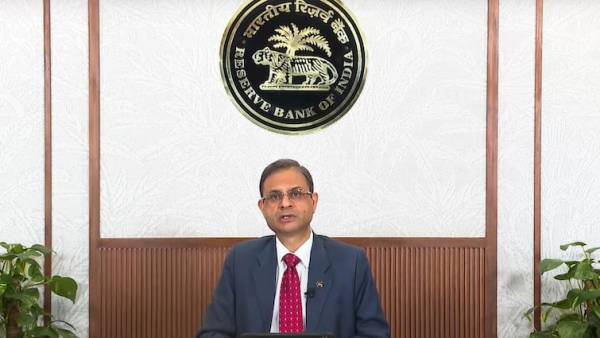
RBI Governor Sanjay Malhotra on Monday said financial stability, like price stability, is a necessary condition for boosting economic growth even as he flagged that structural shifts in the global economy are making policy interventions challenging.
"Financial sector regulators remain committed to protecting customers, promoting competition and fostering innovation as they strike the right balance between improving efficiency and growth, and safety and soundness," he said in the foreword to the Financial Stability Report (FSR) for June.
According to the governor, there are many structural shifts that are reshaping the global economy, including growing fragmentation in trade, rapid technological disruption, ongoing climate change and protracted geopolitical hostilities.
"They make economic forecasts difficult and policy interventions challenging. Therefore, even as they navigate through the fog of uncertainty, it is imperative for central banks and financial sector regulators to remain vigilant, prudent and agile in safeguarding their economies and financial systems," he said.
Malhotra also highlighted that "financial stability, like price stability, is a necessary condition, and not a sufficient one to boost India's potential growth".
As custodians of financial stability, he said, the efforts are to develop a well-functioning financial system that not only promotes macroeconomic stability but also provides financial services efficiently.
Amid global uncertainties, he said, the Indian economy remains a key driver of global growth.
"Growth momentum is buoyed by strong domestic growth drivers, sound macroeconomic fundamentals and prudent policies. Nonetheless, external spillovers and weather-related events could pose downside risks to growth," he said.
The outlook for inflation, on the other hand, is benign and there is greater confidence in the durable alignment of inflation with the Reserve Bank's target, he said.
As this edition of the FSR highlights, the resilience of the domestic financial system is continuously improving, bolstered by strong capital buffers, low non-performing loans and robust profitability, he said.
Results of stress tests reaffirm the strength of the banking and non-banking sectors with capital levels projected to remain well above the regulatory minimum even under adverse shock scenarios, he said, adding that the healthy balance sheets of corporates, banks and non-banking financial companies (NBFCs) augur well for the economy.
Observing that the announcement of higher tariffs by the US administration in April has set in motion a new paradigm in trade and economic policy, he said geopolitical risks remain elevated.
The ensuing policy uncertainty and unpredictability will influence global growth, he said, adding, international agencies, including the IMF, the OECD and the World Bank, have revised growth downwards.
Against this backdrop, near-term global financial stability risks have increased and the market turbulence in April was a stark reminder of how existing vulnerabilities in the global financial system are amplified by sudden shocks.
Though financial markets have stabilised after this episode, he said they remain volatile and highly sensitive to economic and geopolitical developments.
Globally, he said, risks associated with elevated public debt and possibilities of further corrections in asset prices remain high.
(This report has been published as part of the auto-generated syndicate wire feed. Apart from the headline, no editing has been done in the copy by ABP Live.)
-
Saboor Aly’s glam look sparks praise on Instagram

-
Women Who Cry Easily Are Quietly The Most Protected By The Universe

-
Daily Horoscopes For Tuesday, July 1, 2025

-
This new AI tool can detect 9 types of dementia from single brain scan

-
Ex-Meta engineers have built an AI tool to plan every detail of your trip
